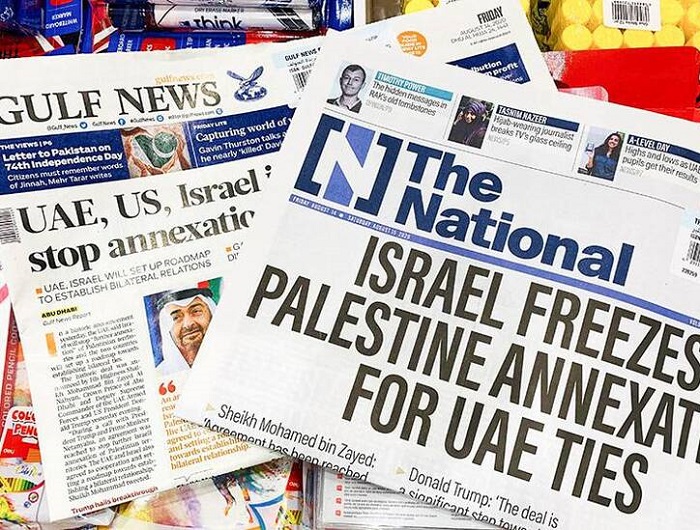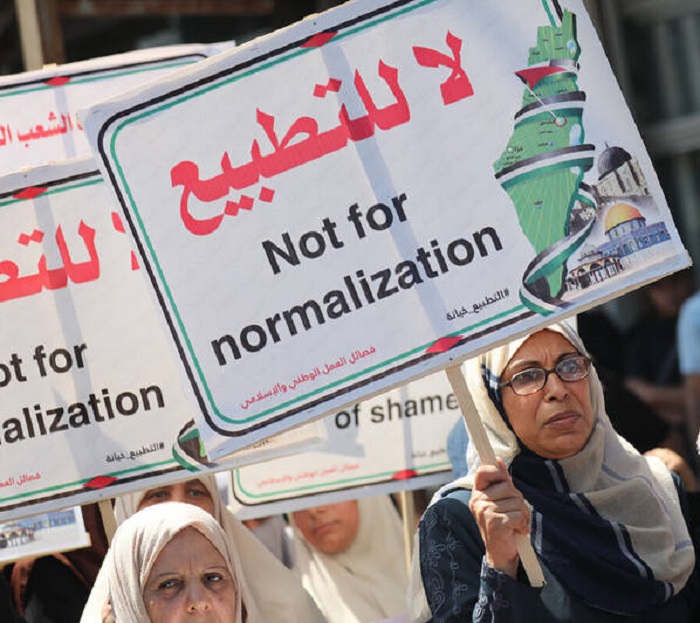In his book, the Jewish historian Meyer Zamir published secret documents for the first time that not only revealed the British plan for change in Lebanon, but also revealed the true nature of many of the current developments.
In Lebanon we are talking about a government whose independence is nothing more than a secret British intelligence operation with its mercenaries, a country where most of its elites and political spectrum were loyal to British colonialism and served its intelligence services.
The decline of the British colonial star in Lebanon in 1958 paved the way for the Americans to enter the country, but this did not mean the end of the British and French presence in Lebanon, but this presence and role took on a different form and nature to this time, the embassies will play the past roles of their countries in Lebanon and achieve their goals in coordination with the US Embassy and the agreements reached, and a clear example of this coordination and alignment of interests in the political exploitation of the West is the assassination of Prime Minister Rafik Hariri. The former Lebanese has been and is remarkably well.
Therefore, if Donald Trump insists that the countries participating in the Western coalition must pay for the US operations, first of all, these operations include both military and intelligence operations, and secondly, there is a coordination of interests between the two countries. The United States and its Western allies emphasize, and of course one of these allies is Britain, which is a member of the highly secretive “Five Eyes” intelligence coalition of the United States, Britain, Australia, New Zealand and Canada.

In his book “The Secret Anglo-French War in Syria and Lebanon, 1948-1940”, Meyer Zamir, a Jewish historian and expert on Lebanese issues and history, reveals many secrets about the influence of the British intelligence services in the political class of Syria and Lebanon.
In this book, Zamir cites confidential documents from the French and British intelligence services that were not allowed to be published until 2015, the year the book was published.
In his book, Zamir speaks of a “club” that includes a flood of Lebanese mercenaries and the Arab world, and this includes not only the political spectrum, government and government employees, diplomats and officials, but also capitalists, business owners and It also includes activists in various economic sectors, including oil companies, writers, members of the media, and local influential figures.
The very important point that this Jewish historian points out is that these mercenaries were trained and educated in such a way that while supporting the issues and issues of the Arab world, these issues were aimed to use at expanding British influence and domination in the region.
According to the documents published in this book, people such as “Shukri al-Qutli”, “Jamil Mardom Beyk” and “Riyadh al-Salah” expanded the scope of British influence and domination in Lebanon, rather than paving the way for its independence.

Some of these documents reveal Britain’s secret role in Riyadh al-Salah coming to power and forming a government by him in 1943 and 1946, and that al-Saleh asked his brother-in-law not to oppose Britain.
These documents reveal a long list of people recruited by the British intelligence services in Lebanon and a number of countries in the region and their services, their liaison and coordinator at the British Embassy in Beirut, a person named “Maroon he was an Arab.
“This introduction was made because a few months ago, some news sites published secret documents that show the very important role of Britain in organizing and providing financial, propaganda and media support to Syrian terrorist groups, especially the role of the British company.” “ERK” revealed that its headquarters in Dubai is run by retired elements of the British intelligence service and diplomatic apparatus, and provides services not only to the UK but also to other countries, including the United States.
What makes “ERK” very important is the company’s expertise in the field of advertising and media and training of cyberspace activists, launching a media and advertising network consisting of 61 journalists, launching 14 radio stations on FM wave, publishing 11 local and indigenous magazines, launching two TV stations, educating more than 1400 active users in cyberspace and distributing more than 53 thousand communication devices including laptops, mobile phones, tablets, computers, etc., The company’s activities in Syria are mentioned, while the published documents emphasize that ERK’s activities in Lebanon are much more comprehensive and extensive than in Syria.

It may seem to some that such activities by the British are not new. In response, what these documents reveal is the extensive work of British embassies and contracting British and local companies in the field of consulting services. Its purpose is not only to shape public opinion, but also to ignite political protests and unrest with the aim of bringing about change away from parallelism and secrecy.
Lebanon, meanwhile, is one of the most important areas of activity of ERK Company, which, according to the company, has a lot of experience in achieving the goals and demands of the governments in power in this country.
ERK’s most successful programs in Lebanon are “Encouraging public opinion to participate in the elections” and “Get up and do something” to raise the level of political participation of Lebanese youth, and two programs, “Black Pencil” and “Nestoya”, which target the community. They were Palestinians in Palestinian refugee camps in Lebanon, and under the auspices of these programs, the goals of Britain and the United States were also implemented on their behalf, and women took an active part in these programs under the title of equality between men and women.
In his book, Zamir mentions another company called Sachi & Sachi, which, like ERK, works in the field of advertising, media and consulting services, and provides documents that prove that most of the slogans of the revolution ” Currency and Batikh »(rice and melon) Lebanon is made and paid by the same company.
The documents reveal that the British Embassy in Beirut has always welcomed any direct cooperation with members of the Lebanese Cabinet from all sides and currents, and in part reveals the close cooperation of the Al-Muniya Municipalities Syndicate, which has a close relationship with”Future Stream” of Lebanon.

According to these documents, the Syndicate of Municipalities of Al-Muniya has been actively involved in projects implemented by Sachi and Sachi with the aim of bringing about change and reform in Lebanon, and the Future Movement will directly benefit from it.
In all these projects, women have a special place, and the presence of women such as “Bahia al-Hariri”, “Naila al-Muwadh” and “Solanj al-Jamil” is quite obvious.
After women, young people are the second target group in the projects of Sachi & Sachi and similar companies, and in this regard, several projects have been implemented and implemented to communicate, attract and orient the political spectrum to the youth of Lebanese society, because this belief young people have the power to lead change.
By attracting young people in various centers and areas, these projects launched “online” movements and organizations along with activists in parliament and political parties and city councils, and began their activities within the specified frameworks.
The most dangerous issue revealed in these documents is the study and research on public opinion in order to influence and shape it, and in this regard, these companies are not content with just conducting regular polls, but also based their polls on focus on a specific topic and a specific group.
The purpose of such polls, also known as “focus groups”, is to find out the details of the views and opinions of the participants in the survey on a specific topic and its generalization to the whole community, and it turns out that only Nabatieh, Saad Nayel, Dahiyeh, Al-Jadeedah, Elaq, Akar and Tripoli have been the focus of focus group polls, without even a single poll from the south or Bekaa. Was this a random choice?

Both right and wrong polls have a great impact on public opinion and the direction of these opinions, because it inspires the individual that the prevailing view and opinion in society is this and that.
The most prominent examples of influencing public opinion and shaping them are the UAE-affiliated Zogby and the Zionist-affiliated Washington Studies Center, which are just a few days after the announcement of the normalization of relations between the UAE and Israel. In line with the strategy of normalizing Arab sheikhs’ relations with Israel, and in contrast to the results of opinion polls, they published regional study centers, including the “Arab Center”, to lead the Arab world public opinion towards accepting the normalization of relations with Israel. Accept these relations among the Arab communities.

In this regard, while a poll claimed in recent months that more than half of Lebanese Shiites are dissatisfied with the performance of the country’s two Shiite organizations, Hezbollah and the Amal movement, an unpublished ERK poll It is very important, he shows, that Hezbollah weapons are the only issue that does not disturb and worry the Lebanese public opinion and there is no dissatisfaction with it.
The company’s other poll on Lebanese public opinion of other countries, including Iran, Saudi Arabia, the United States, Russia and Britain, also shows that Iran and Russia are more popular among Lebanese than any other three countries.

After women and youth, Palestinian refugee camps are the third target of companies providing counseling and propaganda services, and their activities in these camps go far beyond the activities and influence of “Mohammad Dahlan” in them, this is where one can easily find out why. He noticed a change in public opinion.
While Palestinian refugee camps have been the focus of change in Lebanon and Palestine for decades, these days they are embroiled in sectarian and religious strife and technical and artistic work that has nothing to do with the Palestinian cause.
The influence of such companies and US and British embassies in a country like Lebanon is so deep and wide that, for example, they affect the military program on the common borders of Syria and Lebanon.
Summary
Given what has been said and the scope of these companies in other countries in the region, including Iraq, Syria, etc., We should not be surprised by the publication of some polls and some news with the aim of weakening the resistance axis and confronting them.

Areas and arenas of confrontation in the 21st century are not the traditional arenas and arenas of the past. The arenas of confrontation in the 21st century are more bloody than the battlefields of traditional and conventional warfare, with the difference that no drop of blood is shed in appearance.









